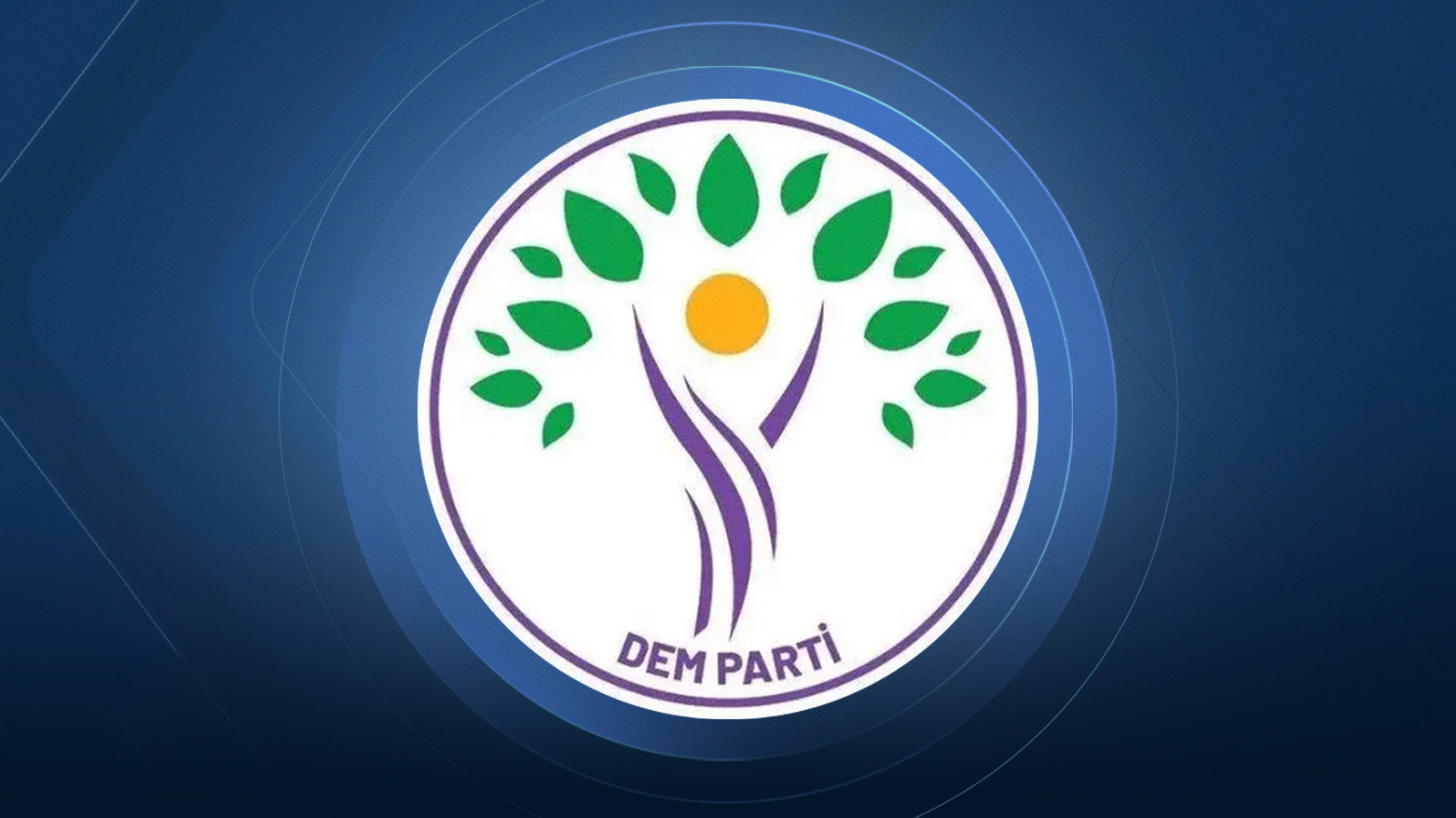DEM Party: Turkey must release Demirtas, resume peace talks with Ocalan
DEM Party Co-chair Tulay Hatimoğulları demands Turkey release Selahattin Demirtas and resume peace talks with Abdullah Ocalan, stating no process can succeed without the imprisoned PKK leader's dialogue.

ERBIL (Kurdistan 24) — Tulay Hatimoğulları, Co-Chair of the Peoples’ Equality and Democracy Party (DEM Party), said Turkey has no choice but to release Selahattin Demirtas and Figen Yüksekdağ, stressing that any peace process will fail unless the state reopens dialogue with imprisoned Kurdish leader Abdullah Ocalan.
Speaking to Mezopotamya Agency on Friday, Hatimoğulları highlighted the European Court of Human Rights’ (ECHR) repeated rulings demanding Demirtas’ release.
“The ECHR has now, for the third time, ruled for Selahattin Demirtas’ release, yet this ruling has still not been implemented,” she said.
The DEM Party co-chair noted that not only Demirtas and Yüksekdağ, but all detainees imprisoned in connection with the Kobani case should be freed. She also pointed out that some prisoners in Turkey have been held for 32–33 years without being released, despite differing legal circumstances.
“Without dialogue with Ocalan, the process cannot move forward,” she stated, underlining Ocalan’s central role in the peace efforts.
Hatimoğulları added:
“Mr. Ocalan played a vital role and assumed great responsibility during the peace process. He is seen by the peoples as a key actor in resolving the Kurdish question. Everyone knows that without talks with him, no progress can be made. For this reason, democratic forces, as well as both the Turkish and Kurdish peoples, call for such dialogue. We believe that if it resumes, Mr. Ocalan will contribute significantly to advancing the process.”
Although nearly a week has passed since the European Court’s ruling for Demirtas’ release, Ankara has not yet complied.
Legal experts note that there is no judicial basis for his continued imprisonment. However, political observers argue that political motives are preventing his freedom.
Following the ruling, calls for Demirtas’ release have grown louder across Turkey — from MHP and CHP members to dozens of civil organizations, lawyers, and prominent figures.
Legal expert Ramazan Tuncer told Kurdistan 24:
“The purpose of Demirtas’ imprisonment was political — to silence him. But after the European Court’s ruling, Turkey has no option but to release him. Otherwise, it will face international sanctions that could harm its economy. In addition, for the sake of the peace process, Turkey will have to free him. There is no legal reason to keep Demirtas imprisoned, and I believe he will regain his freedom soon.”
Political analyst Mihemed Gul also linked the issue to ongoing talks between the ruling Justice and Development Party (AK Party) and the DEM Party.
“Demirtas’ release is tied to political bargaining. The AK Party seeks DEM Party support — whether for constitutional amendments or the next presidential race. The AK Party offers concessions, but the DEM Party wants guarantees to prevent another collapse of the process. So far, both sides have not reached an agreement, leaving Demirtas’ fate uncertain,” he said.
Recently, the European Court once again urged Ankara to release Demirtas. Nationalist Movement Party (MHP) leader Devlet Bahçeli commented that his release would “serve Turkey’s interests,” while President Recep Tayyip Erdogan reiterated that Turkey “is not bound by foreign courts” and will uphold its own judiciary’s rulings.
Sozdar Avesta, member of the KCK Executive Council, said the Kurdish movement had taken “historic steps” by withdrawing its guerrilla forces within the peace process framework, but Turkey failed to respond.
Speaking during a televised interview, Avesta said:
“We withdrew our forces from parts of Bakur (Kurdistan of Turkey) as a responsible and historic step to support peace, but the Turkish state did not reciprocate. Instead of pursuing democratic integration, it has failed to legally recognize the Kurdish issue.”
Avesta stressed that the physical freedom of Abdullah Ocalan is the main condition for any successful process.
“For our movement, the essential issue is the physical freedom of Leader Apo (Ocalan). Unless he is free, no process can succeed,” she stated.
She added that opportunities for dialogue with Ocalan remain very limited, and emphasized that establishing “the Right to Hope” and ensuring his legal conditions are vital for moving forward.
Regarding northeastern Syria and the Syrian Democratic Forces (SDF), Avesta strongly rejected Turkish officials’ claims that PKK members had joined the SDF after the withdrawal.
“Not a single PKK member moved to Rojava or joined the SDF,” she said, describing such statements as deliberate attempts to undermine a political solution.
Avesta also criticized Turkish Foreign Minister Hakan Fidan’s recent visit to Iraq and his call for “the PKK to withdraw from Syria, Iran, and Iraq.”
“This statement is not just against the PKK — it means ‘let the Kurds leave.’ Such a mindset is the biggest obstacle to peace and democracy in the region,” she said.
She concluded by saying that Turkey should focus on withdrawing from the areas it occupies in Syria and Iraq instead of targeting the SDF.